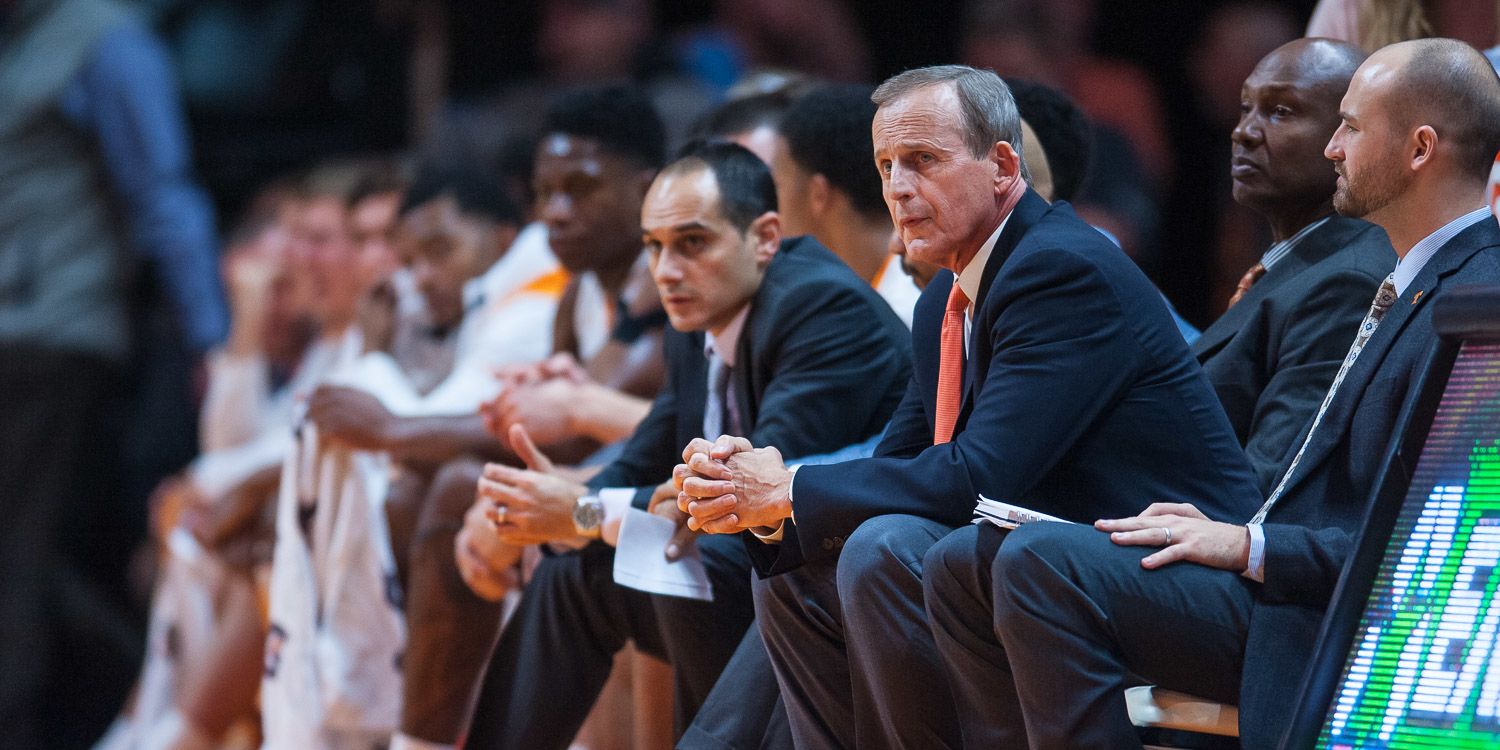It’s not been a good news week, with the 26-point loss to West Virginia and the injury to Brandon Kennedy. But the most significant thing to happen in Tennessee’s athletic department in the last seven days was this:
#Vols’ Rick Barnes now the 10th-highest-paid coach in college basketball and No. 2 behind only John Calipari in the SEC: https://t.co/fKW3yzQyN9 per @GrantRamey pic.twitter.com/SYQ5eWxJ3c
— Wes Rucker (@wesrucker247) September 6, 2018
Rick Barnes will be 70 if he serves the length of this contract through 2023-24. At some point between now and then, I’m sure there will be conversation on a timetable for retirement and if his successor should come from within the staff, etc. Phillip Fulmer will be 74 when Barnes’ deal is up, and may not be making those decisions anymore.
But Fulmer, Barnes, and everyone involved with this week’s decision took a big step for Tennessee basketball. And whenever whoever follows both of them, the program has a chance to be far better for it.
As Grant Ramey points out, Barnes was previously the 10th-highest paid coach in the SEC, 35th nationally. While bigger contracts must be earned, Barnes’ initial salary represented the tail end of a long period of bargain shopping for basketball coaches. While other programs like Florida have had more recent success, Tennessee can rightfully fancy itself as the second-most decorated basketball program in the SEC. But it cannot win that argument when paying its coach at a bottom-third rate.
It makes sense for Barnes to be the second-highest paid coach in the league behind John Calipari, given both his past at Texas and the work he did last season. Whoever takes the job next may not carry the same credentials or command the same rate. But since Doug Dickey hired Kevin O’Neill from Marquette and replaced him with Jerry Green from Oregon, Tennessee had shopped exclusively in the mid-major aisle: Buzz Peterson (Tulsa), Bruce Pearl (Wisconsin-Milwaukee), Cuonzo Martin (Missouri State), and Donnie Tyndall (Southern Miss). The Vols can thank good timing for Barnes being available when Tyndall was let go, or Dave Hart may have taken us down that path again.
Other big-name SEC programs have made mid-major hires like Mike White at Florida or Bryce Drew at Vanderbilt. Sometimes it’s the best play available. But the primary reason the SEC made so much progress the last few years is because of its coaches. Along with Barnes, Mike Anderson, Bruce Pearl, Tom Crean, Ben Howland, Cuonzo Martin, and Frank Martin were all previously employed by a power conference school. Kentucky obviously got the guy they wanted. Avery Johnson came from the NBA. And you can argue the current mid-major hires – Mike White, Will Wade, Bryce Drew, Kermit Davis, and Billy Kennedy – all had resumes relatively stronger than the guys Tennessee hired before Barnes. Obviously Bruce Pearl was dynamite here and Cuonzo Martin made the Sweet 16; both of those guys are back in the league and the tournament now. But the bar has been raised in the SEC. Tennessee giving Barnes and his staff this kind of money suggests they’ll seek to clear it well into the future.

